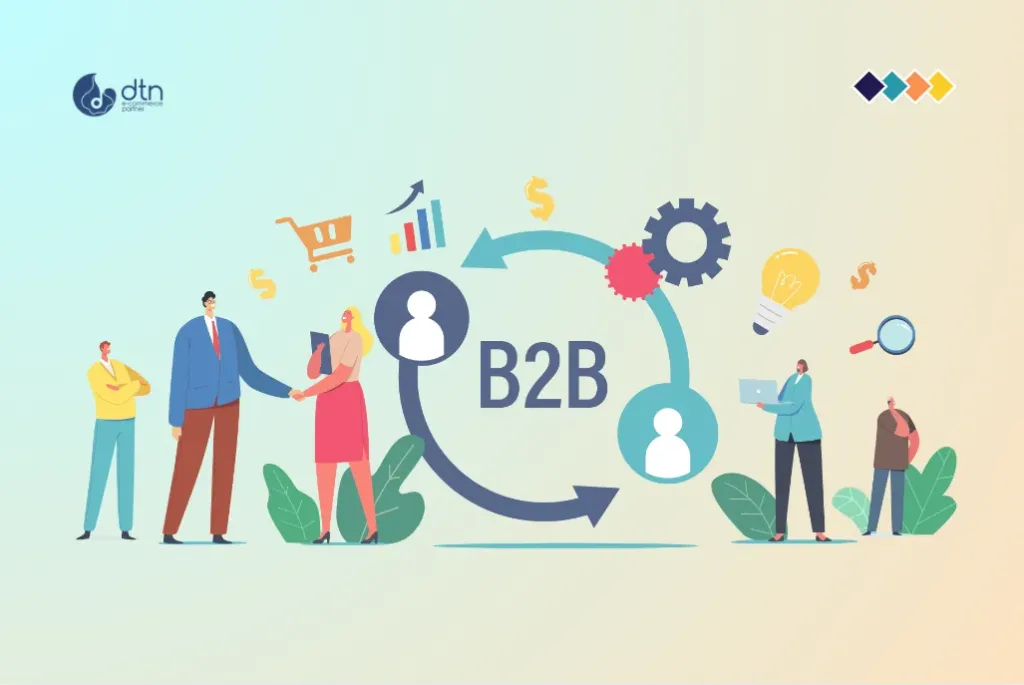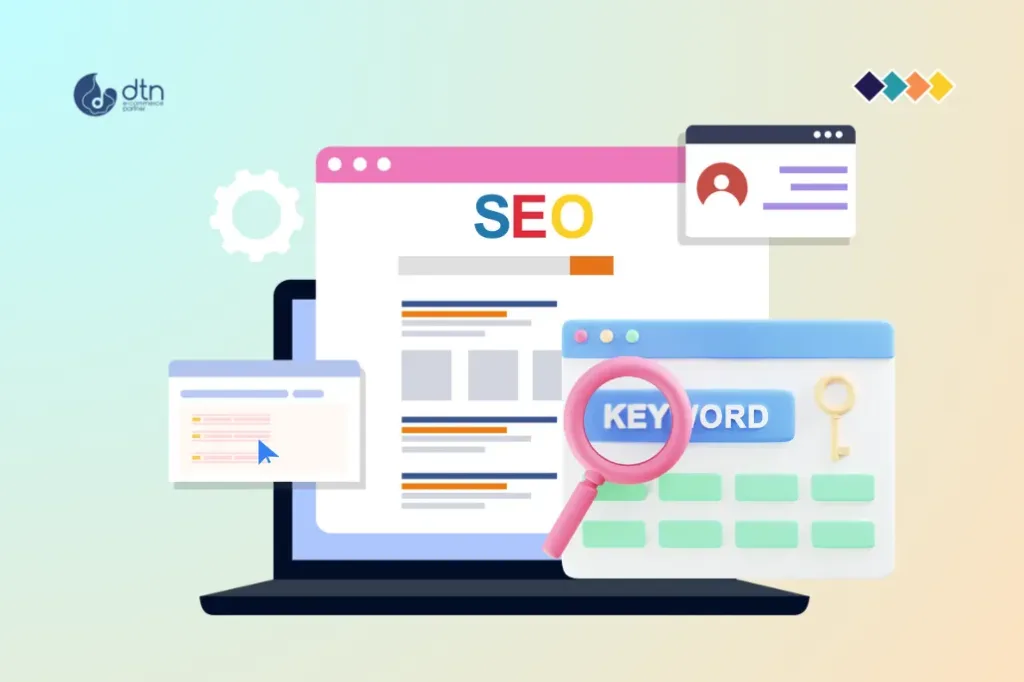In the world of B2B e-commerce, search engine optimization (SEO) plays a crucial role in driving business growth and revenue. Unlike B2C e-commerce, where individual consumers are the primary target audience, B2B e-commerce focuses on catering to business buyers who have specific needs, preferences, and purchasing behaviors. To succeed in this space, it’s essential to develop SEO strategies that resonate with business buyers and address their unique requirements.
In this article, we’ll delve into the world of B2B e-commerce SEO, exploring the most effective tactics to attract, engage, and convert business buyers. Whether you’re a seasoned e-commerce professional or just starting out, this comprehensive guide will provide you with the insights and strategies you need to optimize your online presence and drive business success.
Table of Contents
Understanding the B2B Buyer
Before we dive into the world of SEO tactics, it’s essential to understand the B2B buyer persona. Business buyers are typically:
- More informed: They have a deeper understanding of their industry and the products or services they need.
- More rational: Their purchasing decisions are often driven by logic, rather than emotions.
- More complex: Their buying processes involve multiple stakeholders, and decisions may take longer to make.
- More focused on ROI: They prioritize products or services that offer a clear return on investment (ROI).
To effectively target business buyers, your SEO strategy must take these characteristics into account.

Keyword Research and Optimization
- Use industry-specific terminology: Incorporate keywords and phrases that are specific to your industry or niche.
- Focus on long-tail keywords: Target longer, more specific phrases that have lower competition and higher conversion rates.
- Consider buyer intent: Use keywords that indicate a buyer’s intent, such as “industrial equipment suppliers” or “bulk order discounts.”
- Optimize for question-based keywords: Business buyers often search for answers to specific questions, so optimize your content for keywords like “what is the best [product/service] for [industry]?”

Content Creation and Optimization
High-quality, relevant content is essential for attracting and engaging business buyers. Here are some content creation and optimization tips:
- Create in-depth guides and resources: Develop comprehensive guides, whitepapers, and e-books that provide valuable insights and information.
- Use case studies and success stories: Showcase real-life examples of how your products or services have helped other businesses succeed.
- Optimize product pages: Ensure product pages are detailed, informative, and optimized for relevant keywords.
- Utilize blog posts and articles: Regularly publish blog posts and articles that address industry-specific topics and challenges.

Technical SEO Optimization
Technical SEO optimization is critical for ensuring your website is search engine friendly and provides a seamless user experience. Here are some technical SEO tips for B2B e-commerce:
- Ensure mobile-friendliness: Ensure your website is optimized for mobile devices, as many business buyers use their smartphones to research and purchase products.
- Improve page speed: Optimize your website’s loading speed, as slow speeds can negatively impact user experience and search engine rankings.
- Use SSL encryption: Install an SSL certificate to ensure your website is secure and trustworthy.
- Optimize images and videos: Compress images and videos to reduce file sizes and improve page loading speeds.

Local SEO Optimization
For B2B e-commerce businesses with a physical presence, local SEO optimization is crucial. Here are some local SEO tips:
- Use location-based keywords: Incorporate location-based keywords into your content and meta tags.
- Build high-quality citations: Ensure your business is listed in reputable directories and citations.
- Optimize for voice search: Optimize your website and content for voice search, as many business buyers use voice assistants to find local businesses.

Link Building and Outreach
Here are some link building and outreach tips for B2B e-commerce:
- Guest blog on industry-specific websites: Write guest posts for industry-specific websites and blogs to build high-quality backlinks.
- Participate in industry forums and discussions: Engage with industry professionals and thought leaders to build relationships and generate backlinks.
- Collaborate with influencers and partners: Collaborate with influencers and partners to build relationships and generate high-quality backlinks.
- Optimize for resource pages: Create resource pages that link to other high-quality websites and resources.

Analytics and Tracking
To measure the success of your B2B e-commerce SEO strategy, it’s essential to track and analyze key metrics. Here are some analytics and tracking tips:
- Use Google Analytics: Set up and track key metrics in Google Analytics, such as organic traffic, conversion rates, and bounce rates.
- Analyze conversion rates: Track conversion rates to identify areas where your SEO strategy can be improved.
- Use A/B testing and experimentation: Conduct A/B testing and experimentation to identify areas for improvement and optimize your SEO strategy.

Conclusion
B2B e-commerce SEO requires a deep understanding of the business buyer persona and the unique challenges they face. By incorporating the tactics outlined in this article, you can develop an effective SEO strategy that attracts, engages, and converts business buyers. Remember to stay focused on providing value, building relationships, and optimizing for the unique needs and preferences of your target audience.
By following these best practices and staying up-to-date with the latest SEO trends and developments, you can drive business growth, increase revenue, and establish your brand as a thought leader in the B2B e-commerce space.
Frequently Asked Questions
We’ve compiled a list of answers to common questions.
What are some key characteristics of B2B buyers?
B2B buyers are typically more informed, rational, complex, and focused on ROI compared to individual consumers.
Why is keyword research important in B2B e-commerce SEO?
Keyword research helps identify industry-specific terms, long-tail keywords, and buyer-intent keywords that resonate with B2B buyers, ultimately driving targeted traffic and conversions.
How can content creation and optimization be leveraged for B2B e-commerce SEO?
Content creation and optimization involve creating comprehensive guides, case studies, blog posts, and optimized product pages to provide value, address buyer needs, and improve search engine visibility.
What are some technical SEO optimization tips for B2B e-commerce?
Technical SEO optimization includes ensuring mobile-friendliness, improving page speed, implementing SSL encryption, and optimizing images and videos for better user experience and search engine rankings.
How can B2B e-commerce businesses optimize for local SEO?
B2B e-commerce businesses can optimize for local SEO by claiming and optimizing Google My Business listings, using location-based keywords, building high-quality citations, and optimizing for voice search.
What are some effective link building and outreach strategies for B2B e-commerce SEO?
Effective link building and outreach strategies include guest blogging, participating in industry forums and discussions, collaborating with influencers and partners, and optimizing for resource pages.
Why is analytics and tracking important in B2B e-commerce SEO?
Analytics and tracking help measure the success of SEO efforts, track key metrics such as organic traffic and conversion rates, identify areas for improvement, and optimize the SEO strategy for better performance and results.



